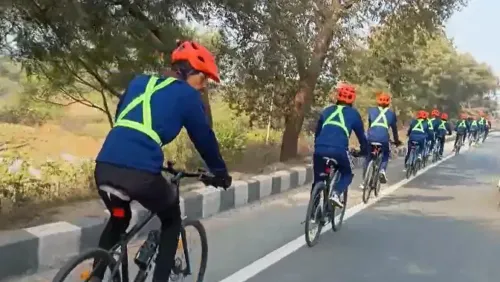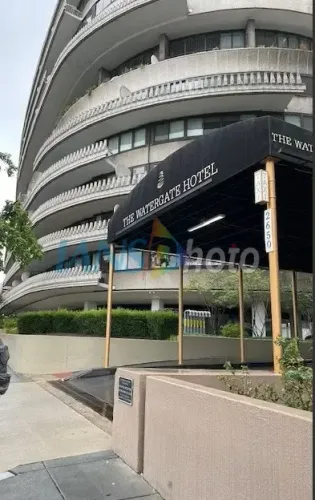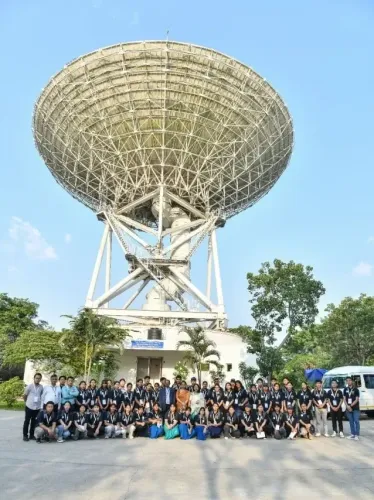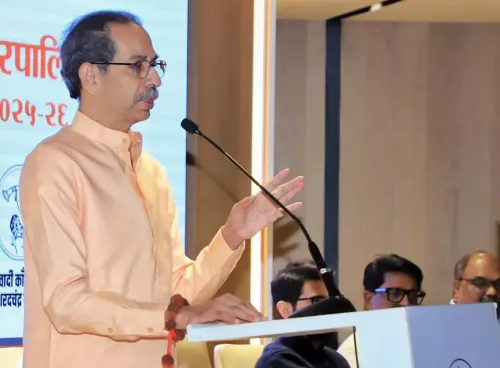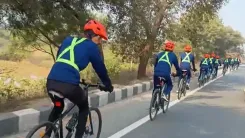NHRC Conference: Professionals Advocate Robot Pilot Project for Sewer Cleaning
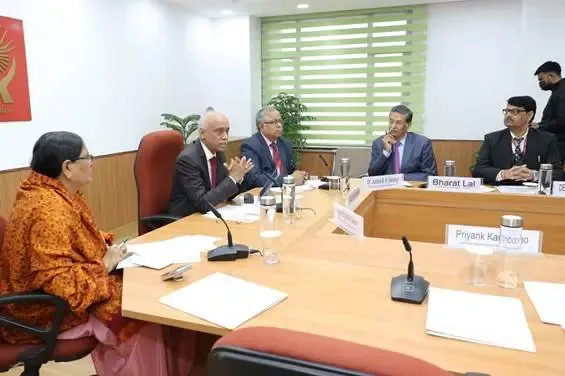
New Delhi, Jan 6 (NationPress) A proposal to initiate a pilot project employing robots for the cleaning of sewer lines and septic tanks was among the recommendations made by experts during a forum addressing the rights of manual scavengers and ensuring their dignity, organized by the National Human Rights Commission (NHRC), an official reported on Monday.
During the discussion titled ‘Dignity and Liberty of Individuals -- Rights of Manual Scavengers’, NHRC Chairperson, Justice V. Ramasubramanian emphasized the importance of investigating and comprehending the underlying causes to propose effective solutions.
He underscored the necessity of launching a pilot project utilizing technology and robots for sewer line and septic tank cleaning, starting in one state to evaluate its effectiveness before considering broader implementation across the nation, as per the statement.
NHRC Secretary General, Bharat Lal, mentioned that the Commission is addressing the adoption of mechanized cleaning methods by various states and the actions taken in this regard.
It has been reported that several states have developed a three-year plan for all Urban Local Bodies, aligning with guidelines set by the Supreme Court in the Dr. Balram Singh v/s Union of India case.
Bharat Lal also pointed out that certain castes and communities are disproportionately impacted by the practice of manual scavenging.
The discussion featured NHRC Members Vijaya Bharathi Sayani, Justice (Dr) Bidyut Ranjan Sarangi, and other senior officials.
Participants included representatives from various ministries, state governments, NGOs, human rights advocates, UN agencies, private entities, and research scholars, who contributed to discussions on critical matters relating to the rights of manual scavengers and ensuring their dignity.
NHRC Joint Secretary, Devendra Kumar Nim, provided an overview of three technical sessions: ‘Addressing the issue of fatalities in septic and sewer tanks in India,’ ‘The necessity for an outright ban on manual scavenging,’ and ‘Rehabilitation strategies for manual scavengers: A pathway to dignity and empowerment and future directions.’
He remarked that manual scavenging represents one of the most significant issues facing society today, necessitating unified and concerted efforts for resolution.
Some recommendations that arose from the discussions included the need for enhanced representation and grassroots monitoring to guarantee effective welfare implementation, as well as surveys for successful execution of rehabilitation programs and minimum wage policies.
Experts also advocated for distinguishing between sanitation workers and manual scavengers within the 2013 Act.
Furthermore, they called for providing incentives for the mechanization of cleaning processes and training for women-led Self-Help Groups (SHGs) to enable sustainable livelihoods.
Transparency in manual scavenging data, reporting of sewer-related fatalities, budget evaluations, and awareness initiatives under the SBM and NAMASTE schemes was also highlighted as essential by the experts.


